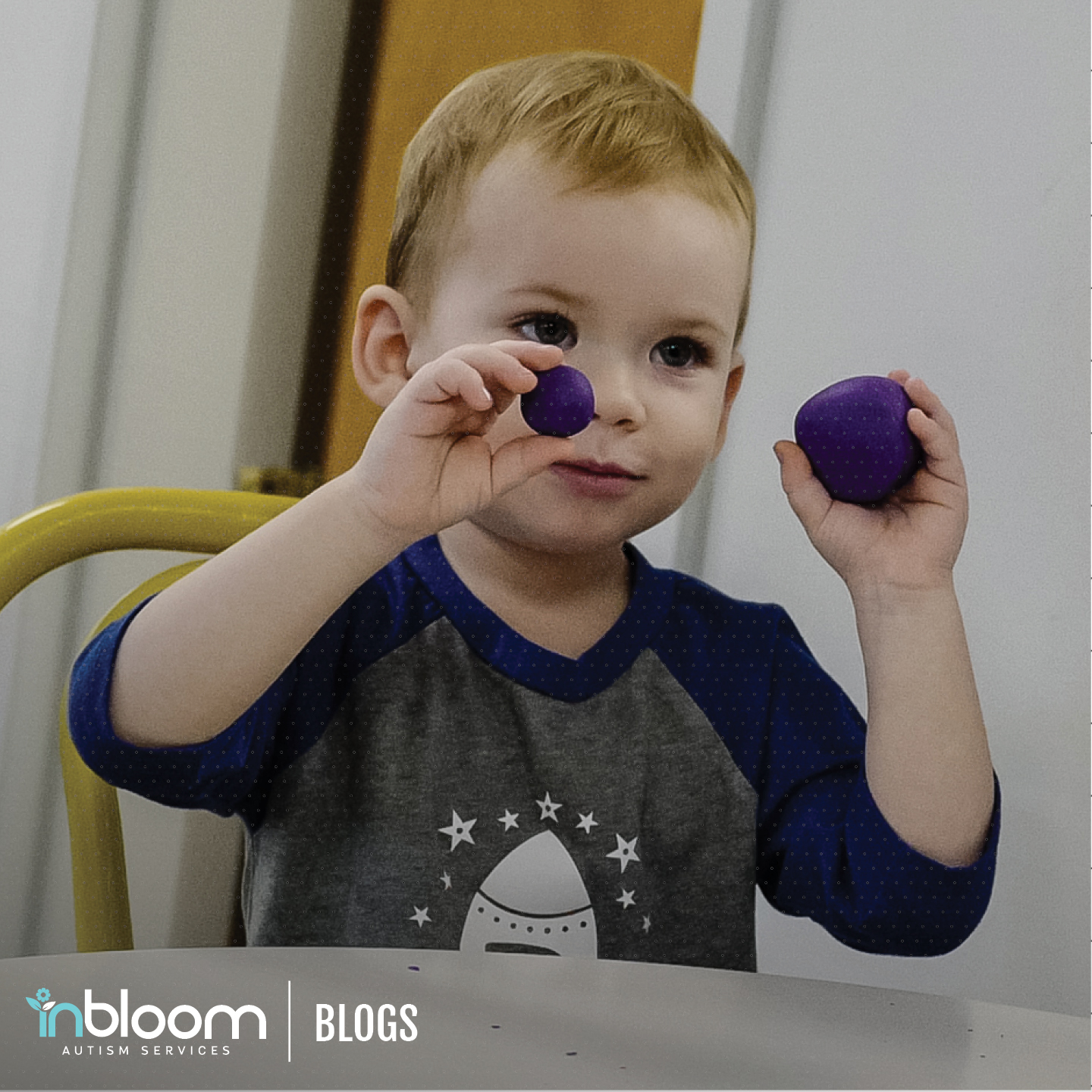Functional Behavior Assessments for Children with Challenging Behaviors
Understanding why a child behaves a certain way is the first step to supporting meaningful change.
At InBloom Autism Services, our Functional Behavior Assessments (FBAs) are designed to uncover the root causes of challenging behaviors and guide compassionate, personalized care strategies.
Whether your child has already received an autism diagnosis or is in the process of evaluation, an FBA can help clarify what’s driving specific behaviors, and what can be done to support them in more productive ways.
To learn more about functional behavior assessments, contact our team or continue reading.
What is a Functional Behavior Assessment?
A functional behavior assessment is a structured process used to identify why a child may be engaging in behaviors that are disruptive, repetitive, or interfere with learning, safety, or daily life.
Instead of focusing solely on what the behavior looks like, an FBA digs deeper to uncover what purpose the behavior serves for the child, whether it’s to gain attention, avoid a task, seek sensory input, or something else entirely.
The Purpose and Goals of an FBA
The main goal of a functional behavior assessment is to understand the function behind a behavior so that effective, individualized strategies can be created to support your child.
This process helps:
Identify patterns and triggers for challenging behaviors.
Pinpoint environmental, emotional, or social factors contributing to the behavior.
Guide the development of a tailored Behavior Intervention Plan (BIP).
Understanding the “why” behind the behavior allows caregivers and clinicians to respond in a way that fosters growth instead of frustration.
What Makes an FBA Different from Other Assessments
Unlike other diagnostic evaluations that focus on identifying developmental conditions like autism, an FBA is specifically centered around understanding behavior in context.
It’s not about labeling, it’s about uncovering meaning and helping a child find more effective ways to communicate or cope.
A functional behavior assessment is often used alongside or after diagnostic evaluations to provide more targeted insight into a child’s needs.
When to Consider a Functional Behavior Assessment
You might consider an FBA if your child is:
- Engaging in behaviors that are aggressive, harmful, or disruptive.
- Struggling with transitions, routines, or social situations.
- Repeating certain behaviors excessively or in distress.
- Not responding to traditional behavior support strategies.
An FBA can be especially helpful for children with autism, but it can benefit any child who’s facing persistent behavioral challenges.
How a Functional Behavior Assessment Works
At InBloom, our Board Certified Behavior Analysts (BCBAs) lead the FBA process, using a combination of interviews, observations, and data collection to gain a complete picture of your child’s behavior.
The process typically includes:
- Parent and caregiver interviews to gather context about the behavior.
- Structured observations at home, in the clinic, or in other environments.
- Data tracking to measure when, where, and how the behavior occurs.
- Hypothesis development about the behavior’s function.
This process is collaborative and family-centered, ensuring that caregivers are supported and informed every step of the way.
What Happens After the Assessment
Once the functional behavior assessment is complete, our clinical team takes the insights gathered and turns them into action.
The next phase focuses on applying what we’ve learned to create a clear, individualized plan that supports your child’s needs at home, in therapy, and beyond.
This collaborative process ensures every step forward is intentional, supportive, and aligned with your child’s developmental goals.
Developing a Behavior Intervention Plan
Once the assessment is complete, your BCBA will use the findings to create a Behavior Intervention Plan (BIP), which is a customized strategy that outlines how to reduce challenging behaviors and reinforce positive alternatives.
A BIP may include:
- Teaching new skills or replacement behaviors.
- Adjusting environments to reduce triggers.
- Providing consistent reinforcement for positive actions.
Collaborating with Caregivers and Clinicians
You won’t be navigating this alone. InBloom’s team will walk you through the plan, answer your questions, and ensure it fits your family’s routines and values.
Our goal is to make sure you feel confident and supported in implementing the strategies.
We also work closely with other clinicians involved in your child’s care, especially when integrating FBA findings into ABA therapy programs.
Monitoring Progress Over Time
Behavioral change doesn’t happen overnight. That’s why we continuously monitor your child’s progress, make adjustments as needed, and celebrate every step forward, no matter how small.
Data-driven decision-making ensures your child’s support plan evolves as they do.
Why Functional Behavior Assessments Matter in Autism Care
Challenging behaviors can affect a child’s ability to learn, connect with others, and thrive in daily routines. A functional behavior assessment helps uncover what’s influencing those behaviors, so families and care teams can respond with effective, compassionate strategies.
Addressing Behavior Through Understanding
Rather than focusing only on what a child is doing, an FBA looks at the situations and conditions that lead to those behaviors. This deeper perspective allows clinicians and caregivers to identify what the child may be trying to express, helping reduce frustration and improve overall well-being.
Supporting Individualized ABA Plans
The results of an FBA guide the creation of tailored ABA therapy programs. By clearly identifying patterns and behavior triggers, your care team can build targeted strategies that support meaningful progress across home, school, and community settings.
Creating a Positive Environment for Growth
When interventions are built around a child’s specific needs and experiences, they’re more likely to succeed. FBAs help foster supportive, consistent environments that encourage positive behaviors and long-term development.
Start Building a Better Path Forward
If your child is showing signs of challenging behaviors, whether at home, school, or in social situations, a functional behavior assessment can provide the insight you need to make meaningful change.
At InBloom Autism Services, our team is here to support your family with compassionate care, personalized strategies, and a commitment to your child’s growth.
We believe that every behavior is a form of communication. Let’s work together to understand your child’s needs and create a plan that builds confidence, connection, and progress.
Contact our helpful, caring team at 888-754-0398 to learn more and get started today






